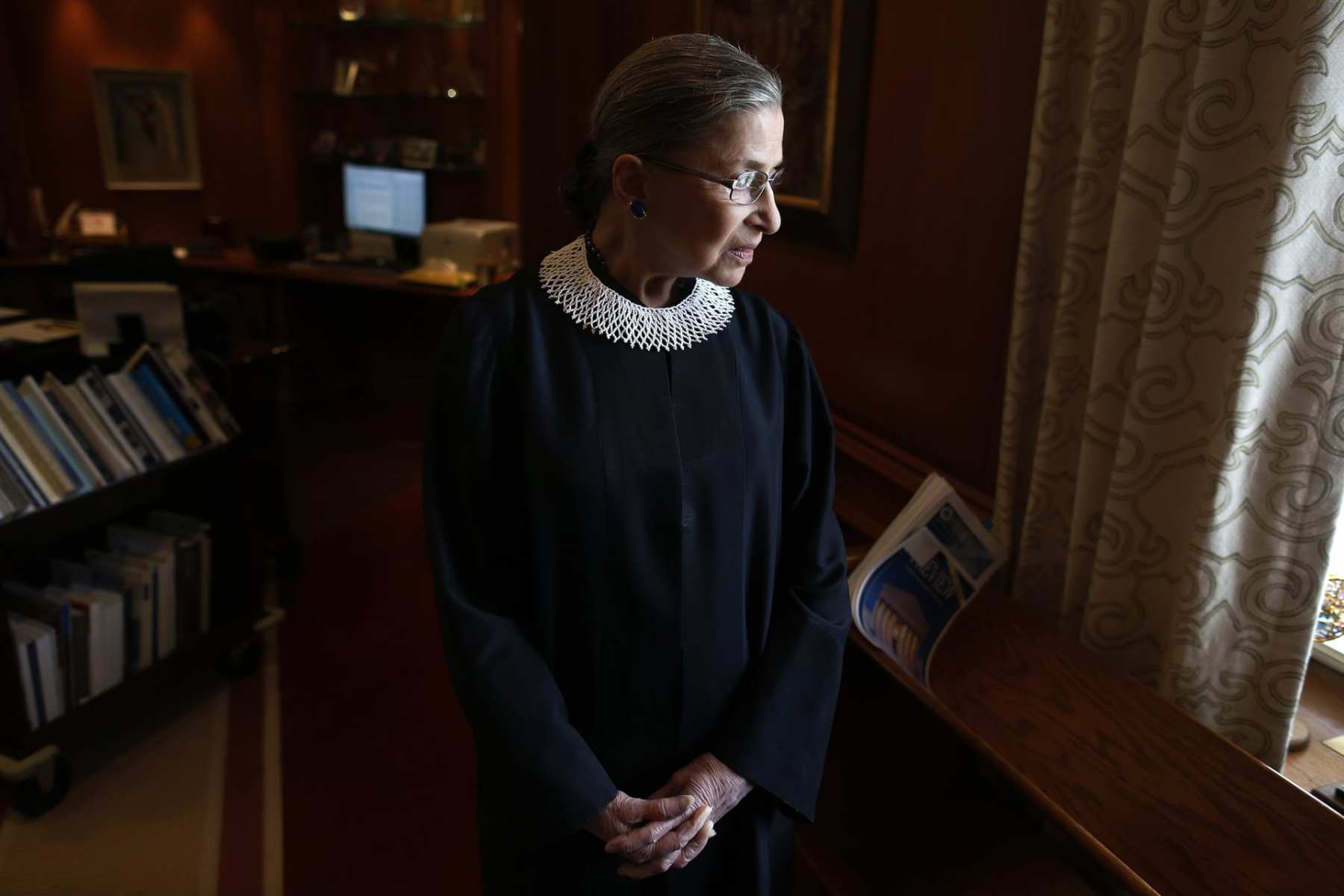The passing of Supreme Court Justice Ruth Bader Ginsburg leaves much of the nation mourning a warrior in the fight for a fairer and freer society.
Ginsburg was 60 years old when she joined the Supreme Court, but she earned her iconic feminist bonafides decades before. As a lawyer, she used the court to make the 14th Amendment of the Constitution — in which the founders guarantee equal protection under the law for all citizens — apply to gender, a novel but necessary interpretation. In her life and her work, she shattered stereotypes for men and women (her husband, Marty, famously did the household cooking) and helped to dismantle the patriarchal systems and norms that held her back in her own life.
For decades, Ginsburg brought her lived experience to the courtroom, and later, to the bench, on issue after issue, from reproductive rights to employment discrimination to access to public benefits.
Lilly Ledbetter was at the Supreme Court during oral arguments in the 2007 gender pay discrimination case she brought against Goodyear Tire and Rubber Company, her former employer. Goodyear was arguing that she had no claim to back pay on the basis of sex on a technicality. Ledbetter watched as the lone woman on the court, Ginsburg, sat on the bench, attempting to understand her situation.
“She was very small in stature, but she asked a lot of questions, very distinct and very direct to the attorneys,” Ledbetter recalled. “It gave me a lot of hope that another justice would join those four that ruled for me. I felt sure maybe some of them would understand and see it. Justice Ginsburg understood because … in her first three jobs, she was told that she would not be paid as much as the men. It wasn’t illegal then. She had lived and worked in the conditions that I was in, just on a different level from my income.”
In a 5-4 decision, the court ruled against Ledbetter, finding that she should have sued within the 180-day statute of limitations. Ginsburg’s scathing dissent — which she read aloud, getting the attention of the press in the court gallery — challenged Congress to do what the courts had not.
Ledbetter said it was Ginsburg that gave her the courage to continue her fight in the months that followed, not only on her own behalf, but for families across the country. Ledbetter recalled steeling herself with the words from Ginsburg’s opinion, testifying before federal lawmakers and eventually helping to usher the passage of the Lilly Ledbetter Fair Pay Act, the first piece of legislation signed into law by President Barack Obama in 2009.
Ginsburg transformed Ledbetter from a plaintiff to an activist for equal pay for women. The pair of working mothers forged a friendship rooted in shared struggles from an era when they were told and shown that their contributions were worth less. They struck up a correspondence and met for an afternoon in Ginsburg’s chambers in November 2010.
“She inspired me tremendously,” Ledbetter said of Ginsburg, whom she called her hero. “I had to meet her. She’s such a motivator.”
Ginsburg was born in 1933, the same year Thurgood Marshall — who would become the first Black Supreme Court justice — graduated from Howard Law School. In much the same way that Marshall created the practice of civil rights law with the creation of the NAACP Legal Defense Fund in 1940, Ginsburg would invent the practice of women’s law, taking up the work of pioneering Black legal scholar Pauli Murray, who coined the phrase “Jane Crow” in describing the unequal treatment of women.
“Just as Jim Crow laws were meant to impose a kind of racial inequality that spoke of a certain kind of white patriarchy, Jane Crow did the same thing for women,” said New York University law professor Melissa Murray, who clerked for Supreme Court Justice Sonia Sotomayor.
“It was more benign and benevolent than segregation, but undergirded by a status and hierarchy that places white men ahead of women. Pauli Murray gives Ginsburg a strategy and the scaffolding that Thurgood Marshall creates in litigating early races cases and translates them into the sex equality realm.”
Both future Supreme Court justices inspired generations of lawyers as the real life Atticus Finch, the protagonist in Harper Lee’s “To Kill A Mockingbird,” did. Marshall, for African Americans, and Ginsburg, for women, saw the law as a tool to help marginalized groups and to force the United States to reckon with the words written on the architrave of its highest court: “Equal justice under the law.”
“Ruth Bader Ginsburg is one of these consequential lawyers who actually shaped the meaning of our democracy,” said NAACP Legal Defense Fund president Sherrilyn Ifill. “Most of us have grown up in a world where that meaning was fixed in a particular way. That was not the understanding of the world not very long ago. There was no single person more responsible for that shift than Justice Ginsburg. She was among the people who challenged the court to imbue the meaning of equality as a bedrock principle with real meaning in the lives of real people.”
Marcia Greenberger, who is the founder and co-president emerita of the National Women’s Law Center, called Ginsburg “an extraordinary force in the law.”
“She was brilliant and she chose from the very beginning to put her brilliance, her skill and her dedication to the cause of improving this world and making sure we have a society that values women’s contributions as it does men’s,” said Greenberger, who now serves as the center’s co-president and whose relationship with Ginsburg spanned nearly five decades. “She recognized that the stereotypes that say ‘women have to do only these things and men have to do only those things’ puts men and women into an arbitrary box that hurts both.”
Ginsburg’s death coincides with the country’s marking of the centennial of women’s suffrage, which is apt: Two of the most powerful forces for gender equality in the last century were the 19th Amendment and the 5-foot, one-inch legal force of nature.
She died 63 days after Congressman John Lewis, their deaths from the same disease — pancreatic cancer — a dual blow amid the dual pandemics of coronavirus and systemic inequality. What their lives and legacy represent for generations of Americans was also similar: An unmatched, unrelenting fight for justice and equality.
For many, their deaths represent the fall of two towering pillars of American democracy, without whom the path forward appears less clear. Their loss leaves those left behind feeling both grief for the end of such consequential lives and a resolve to fight on in their spirit.






